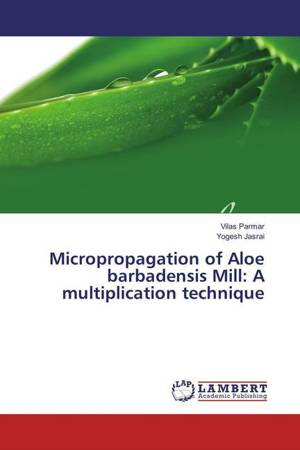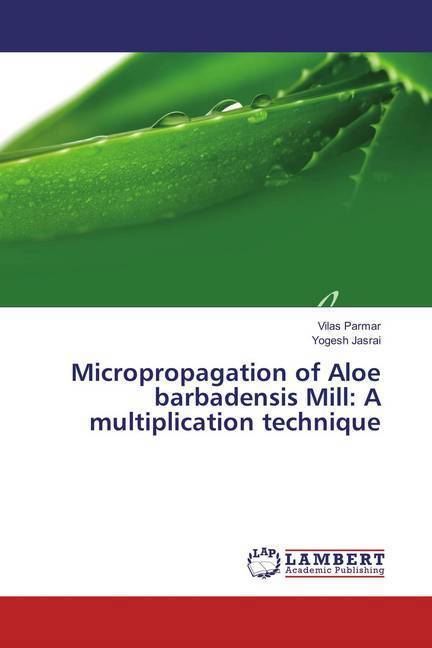
Door een staking bij bpost kan je online bestelling op dit moment iets langer onderweg zijn dan voorzien. Dringend iets nodig? Onze winkels ontvangen jou met open armen!
- Afhalen na 1 uur in een winkel met voorraad
- Gratis thuislevering in België vanaf € 30
- Ruim aanbod met 7 miljoen producten
Door een staking bij bpost kan je online bestelling op dit moment iets langer onderweg zijn dan voorzien. Dringend iets nodig? Onze winkels ontvangen jou met open armen!
- Afhalen na 1 uur in een winkel met voorraad
- Gratis thuislevering in België vanaf € 30
- Ruim aanbod met 7 miljoen producten
Zoeken
Micropropagation of Aloe barbadensis Mill: A multiplication technique
Vilas Parmar, Yogesh Jasrai
Paperback | Engels
€ 39,45
+ 78 punten
Omschrijving
We present a method for development of micropropagation protocol of Aloe barbadensis. Aloe barbadensis Mill (synonym- Aloe vera L) is known as Kumari in Ayurveda. It is an important perennial medicinal herb belonging to the family Liliaceae. Aloe leaves contain very useful secondary metabolite like anthracene derivatives, which occur either free or in the form of glycosides. Because of its anti-inflammatory, anti-cancer, antiviral, anti-bacteria, immune-enhancing and parasite killing activities. In nature, propagation of Aloe barbadensis Mill is primarily by means of offshoots. But propagation rate is slow as a single plant can produce only 3-4 offshoots in a year. Because of its heavy exploitation and ever increasing demand the production rate of Aloe plants is insufficient for commercial plantation. Thus there is a need to undertake large-scale multiplication and cultivation of Aloe.
Specificaties
Betrokkenen
- Auteur(s):
- Uitgeverij:
Inhoud
- Aantal bladzijden:
- 84
- Taal:
- Engels
Eigenschappen
- Productcode (EAN):
- 9783659827686
- Uitvoering:
- Paperback
- Afmetingen:
- 150 mm x 220 mm
- Gewicht:
- 144 g

Alleen bij Standaard Boekhandel
+ 78 punten op je klantenkaart van Standaard Boekhandel
Beoordelingen
We publiceren alleen reviews die voldoen aan de voorwaarden voor reviews. Bekijk onze voorwaarden voor reviews.











